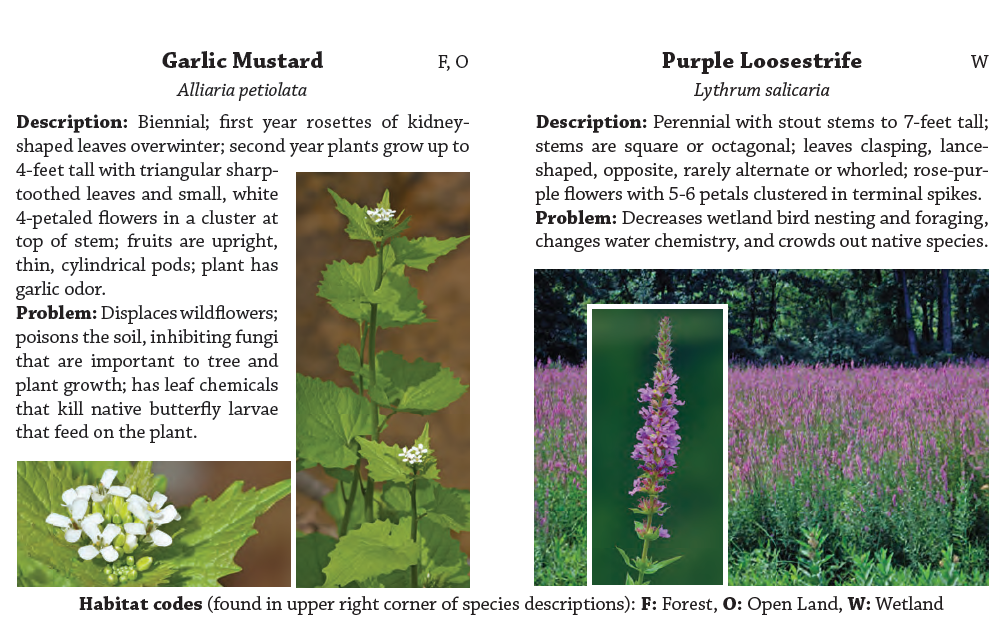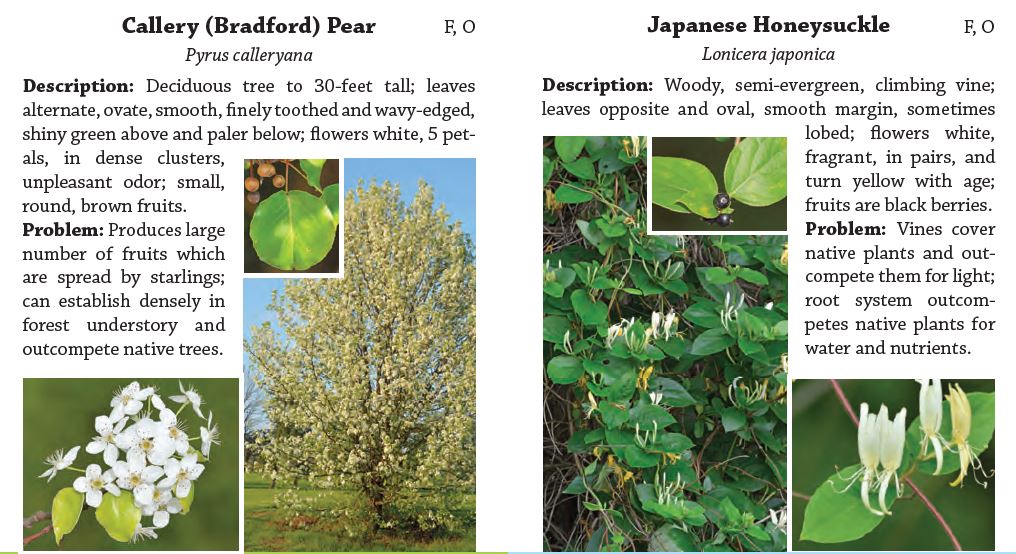Damaging Both Our Environment and Our Economy
Invasive Species are plants and animals that damage both our environment and our economy. Invasive species are often exotic (not found in North America prior to European settlement) and wreak havoc on native ecosystems. These species invade an area and out-compete native plants and animals for resources. Since invasive species do not have any natural predators, their numbers will continue to grow unchecked without human intervention. Some of these invasive species were brought to the United States intentionally, while others were introduced inadvertently. A great deal of time and money are spent each year in an attempt to control these invaders.
Examples of Invasive Species
Some examples of invasive species include the Emerald Ash Borer beetle (Agrilus planipennis), which has been eliminating ash trees across the state. Asian bush honeysuckle (Lonicera spp.) is an aggressive understory shrub which forms a dense thicket in the forest, shading out all other plants beneath it. Aquatic invasive species include reed canary grass (Phalaris arundinacea), which forms thick stands in wet areas, over-taking native plants and forming a monoculture. Another aquatic invader is the zebra mussel (Dreisenna polymorpha), which attaches to any hard surface underwater, including native mussels. They form a thick layer that damages boats and structures and kills native mussels.
Exotic species: species introduced to an area where they do not naturally occur.
Invasive species: aggressive species which reproduce rapidly and out-compete other species for resources, negatively impacting the ecosystem.
Noxious weeds: government-regulated plants that are deemed detrimental.
Weed: is a plant growing in a location where it is not wanted.
State-listed noxious weeds:
- Canada thistle (Cirsium arvense)
- Purple loosestrife (Lythrum salicaria)
- Multiflora rose (Rosa multiflora)
- Burcucumber (Sicyos angulatus)
- Columbus grass (Sorghum almum)
- Shattercane (Sorghum bicolor)
- Johnsongrass (Sorghum halepense)
Top invasive species in Indiana


For more information on invasive and noxious species control: